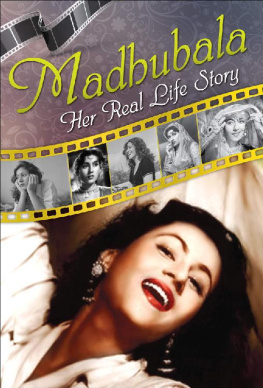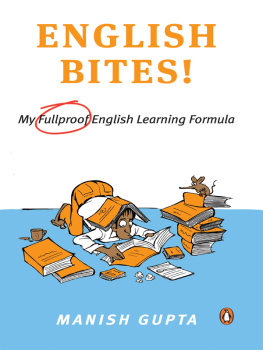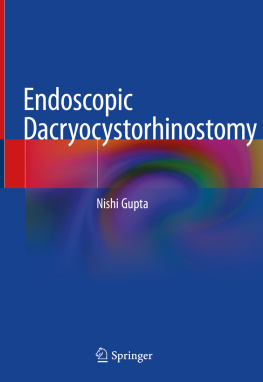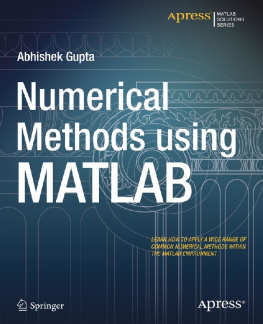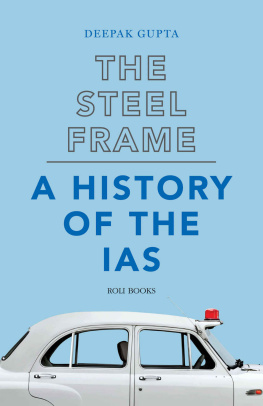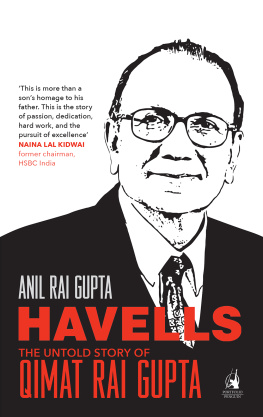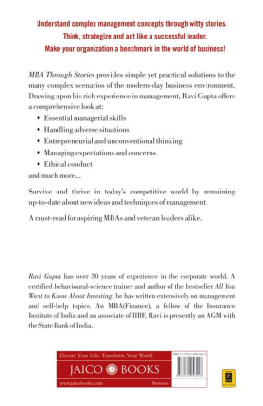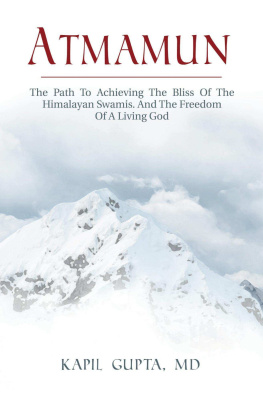Manju Gupta [Gupta - Madhubala: Her Real Life Story
Here you can read online Manju Gupta [Gupta - Madhubala: Her Real Life Story full text of the book (entire story) in english for free. Download pdf and epub, get meaning, cover and reviews about this ebook. year: 2014, publisher: GENERAL PRESS, genre: Non-fiction. Description of the work, (preface) as well as reviews are available. Best literature library LitArk.com created for fans of good reading and offers a wide selection of genres:
Romance novel
Science fiction
Adventure
Detective
Science
History
Home and family
Prose
Art
Politics
Computer
Non-fiction
Religion
Business
Children
Humor
Choose a favorite category and find really read worthwhile books. Enjoy immersion in the world of imagination, feel the emotions of the characters or learn something new for yourself, make an fascinating discovery.
- Book:Madhubala: Her Real Life Story
- Author:
- Publisher:GENERAL PRESS
- Genre:
- Year:2014
- Rating:3 / 5
- Favourites:Add to favourites
- Your mark:
- 60
- 1
- 2
- 3
- 4
- 5
Madhubala: Her Real Life Story: summary, description and annotation
We offer to read an annotation, description, summary or preface (depends on what the author of the book "Madhubala: Her Real Life Story" wrote himself). If you haven't found the necessary information about the book — write in the comments, we will try to find it.
Manju Gupta [Gupta: author's other books
Who wrote Madhubala: Her Real Life Story? Find out the surname, the name of the author of the book and a list of all author's works by series.
Madhubala: Her Real Life Story — read online for free the complete book (whole text) full work
Below is the text of the book, divided by pages. System saving the place of the last page read, allows you to conveniently read the book "Madhubala: Her Real Life Story" online for free, without having to search again every time where you left off. Put a bookmark, and you can go to the page where you finished reading at any time.
Font size:
Interval:
Bookmark:

Published by GENERAL PRESS 4228/1, Ansari Road, Daryaganj New Delhi 110002 Ph. : 011 23282971, 45795759 e-mail : generalpressindia@gmail.com www.generalpress.in General Press All rights reserved. No part of this publication may be reproduced, stored in a retrieval system, or transmitted, in any form or by any meanselectronic, mechanical, photocopying, recording or otherwisewithout the prior written permission of the publishers. First Edition : 2014 ISBN : 9789380914961 0 1 0 6 2 0 1 7 |

Madhubala (Mumtaz Jehan Begum) with her captivating smile
(1933 1969)
A llah, main marna nahin chahti (God, I dont want to die) was the plaintive cry of a bewitching beauty whose acting abilities in the Hindi cinema, be it a comedy, tragedy or romantic interlude, coupled with her tragic life story cut short by an incurable heart defect, established her as one of the most sought-after actresses in India. Her presence in public memory to this day becomes apparent when in a recent poll, she scored the maximum number of points for beauty and acting among all the actresses of Indian cinema past and present. Her posters are still in demand and she is mentioned as one of the most beautiful faces of the Indian silver screen but whose beauty attracted more attention than her talent. In 2004, nearly thirty-five years after her death, a digitally-coloured version of her film was released, in 2008 followed by a commemorative postage stamp, produced by India Post in a limited-edition presentation pack. The only other Indian actress to be so honoured was Nargis Dutt, who, not only a seasoned actress and a social worker too, passed away at a rather young age due to affliction with cancer.
Have you been able to identify about whom we are talking? It was none other than the beautiful and versatile actress of Hindi cinema MADHUBALA, whose real life, marked by fame, wealth, drama, love, sorrow and heartbreak, ran hand in hand with the unrelenting diktat of destiny till she breathed her last on 23 February 1969, shortly after her thirty-sixth birthday in that same month. The mere mention of her name conjures up an image of a stunning beauty with a mischievous, crooked smile and one who has left behind her memory in films for the posterity to relish her beauty and histrionics. As she led a very secluded life, partly due to her own liking but mostly in compliance with her fathers wishes, very little is known about her except for what was written when she was alive and what has been narrated by those who had seen or known her from close quarters.
Madhubalas life cannot be viewed in isolation; mention must be made of her co-stars, directors, producers, singers, etc. with whom she interacted and whose contributions, apart from her own, went in to make some of her films all-time favourites. Hence, the period 1947 to 1960, when she was a formidable name in the Hindi film industry, was the golden age of Indian cinema it was the era of film directors like Kedar Sharma, Mehboob Khan, Amiya Chakravorty, K.A. Abbas, Raj Kapoor, K. Asif and Bimal Roy; it was the period of musicians like Anil Biswas, Ghulam Haider, S.D. Burman, Sajjad Husain, Hemant Kumar, O.P. Nayyar, Khayyam, C. Ramchandra, Shankar-Jaikishen and Salil Choudhry; it was the time of magical voices like Shamshad Begum, Noor Jehan, Rajkumari, Amirbai Karnataki, Suraiya, Lata Mangeshkar, Mohammed Rafi, Mukesh, Talat Mehmood and Geeta Dutt; it was the season of poets like Sahir Ludhianvi, Shakeel Badayuni, Kaifi Azmi, Rajinder Kishen, Raja Mehdi, Majrooh Sultanpuri, Qamar Jalalabadi; and it saw the presence of a veritable galaxy of female heroines like Kamini Kaushal, Nalini Jayawant, Bina Rai, Nargis, Nimmi, and Nutan and their male counterparts like Dilip Kumar, Raj Kapoor, Dev Anand, Balraj Sahni, Motilal and others whose contributions are mentioned in glowing terms even today.

W hen she was born as Mumtaz Jehan Begum Dehlavi in Delhi on 14 February 1933, St. Valentines Day, a najoomi (fortune-teller), who was also known as Kashmirwale Baba , predicted that Mumtaz would have an astonishing future. The n ajoomi said, Badi hokar ye ladki bahot naam kamayegi, bahot paisa aur shohrat paayegi, lekin (this girl will earn prestige, money and fame but) and he paused and added that this girl would die before her age. All his predictions turned out to be true.
Born into an orthodox, middle-class Pathan family of Afghan origin, who could ever thought on seeing her that one day she would become famous as Madhubala, one of the most beautiful and versatile actresses of Hindi cinema? Her father Ataullah Khan was a dour and strict disciplinarian, who dominated both her life and career. He worked with the Imperial Tobacco Company in Peshawar, Pakistan, before coming to Delhi to start working as a driver for the same company. He did not stay here for long as, in the words of his youngest daughter Shahida, My father worked with the Imperial Tobacco Company in Peshawar with the British. But being a Pathan, he was hot-headed and self-respecting. He couldnt bear being badly treated and lost a 15-year-old job in seconds.
Ataullah Khans wife, Begum Ayeesha was a simple, illiterate woman who devoted her life to look after the home and the family. She gave birth to eleven children but three daughters and two sons died at the age of five and six. The six surviving daughters were Kaneez Fatima and Altaf before Mumtaz Jehan and three younger ones, named Chanchal, Zahida and Shahida. The last three addressed Mumtaz Jehan as Majhli Aapa , the second elder sister.
Ataullah Khan decided to relocate his family to Mumbai in the hope of making good, but the family had to endure unaccountable hardships. On 14 April 1944, a dock explosion and fire wiped away their small home, taking them to the streets. The family had a lucky escape as all of them had gone to see a film at a local theatre. Fortunately for them, a friend took them in, gave them shelter and food, and looked after them for seven months. Quite obviously this Pathan family had to undergo trying times as once Mumtaz Jehan herself recalled, There were moments free of care and filled with joy. Then followed hardships and the heart-breaking effort to live and sustain oneself.
Shahida expressed her gratitude to her sister long after her death, Right through my childhood, Aapa (as she addressed Mumtaz Jehan) remained busy shooting. Coming from a conservative Muslim family of Pathans, my father wasnt keen that we study. But fortunately, I was sent to St. Josephs Convent, Bandra. Yes, she was the only earning member. She remained the earning member till the last. All that we are today, we owe it all to her.

W ith his six remaining daughters to provide for, Ataullah Khan decided that his daughter Mumtaz Jehan, being the prettiest and brightest, would support them provided she could find a job in films. So, without a job for himself and with the young Mumtaz Jehan holding his hand, he began to frequent the film studios of Bombay in the hope of finding work. These film studios were in their backyard at Malad, where they would audition. It did not take long before Mumtaz Jehan bagged a role in Amiya Chakravortys film Basant as Baby Mumtaz. In this film, which was released in 1942, she also sang two songs and one of them, Mere chhotey se man mein chhoti si duniya re became immensely popular. At the tender age of nine, this marked her first step into the movie industry, which would provide financial sustenance to her family as long as she lived. A contemporary of Mumtaz Jehan was Nimmi, who, of the same age or so, saw this film and was captivated by Mumtaz Jehans self-assured acting and song.
Font size:
Interval:
Bookmark:
Similar books «Madhubala: Her Real Life Story»
Look at similar books to Madhubala: Her Real Life Story. We have selected literature similar in name and meaning in the hope of providing readers with more options to find new, interesting, not yet read works.
Discussion, reviews of the book Madhubala: Her Real Life Story and just readers' own opinions. Leave your comments, write what you think about the work, its meaning or the main characters. Specify what exactly you liked and what you didn't like, and why you think so.

